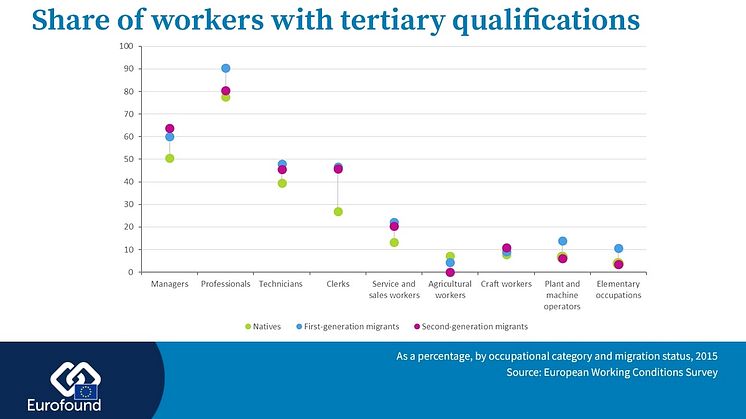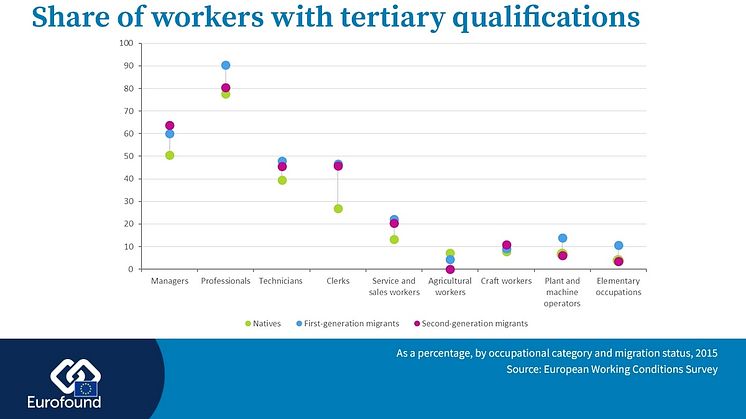
News -
First-generation migrants more likely to have third-level education
First-generation migrants in the EU are significantly more likely to have attained tertiary qualifications than natives and second-generation migrants. However, first-generation migrant workers are also more likely to have primary education only, compared to the native population. This shows that educational attainment is more polarised.
Eurofound’s new policy brief ‘How your birthplace affects your workplace’ uses national and EU-level data, including the European Working Conditions Survey, to analyse the employment and labour market progression of workers of a migrant background, compared to workers of no migrant background. The European Working Conditions Survey analysis shows that, overall, there are sharp contrasts in the educational attainment of native and workers with a foreign background, with the latter more likely to be found among workers with elementary and tertiary levels of education.
Eurofound’s analysis of Eurostat data also shows that, in most countries, workers with a foreign background are more likely to consider themselves overqualified for their jobs than natives. This perception tends to be more prevalent among first-generation workers. Czechia and Slovakia are the only countries where natives are more likely to consider themselves to be overqualified.

Research shows that lack of language skills and lack of recognition of qualifications are among the main barriers preventing first-generation migrants from obtaining jobs equivalent to their qualifications. Given the efforts at EU level to achieve greater comparability of qualifications, migrants from non-EU countries especially encounter this barrier.
More information:
- Download the policy brief: How your birthplace affects your workplace
- Relevant graphs and data from the research in the related content below




